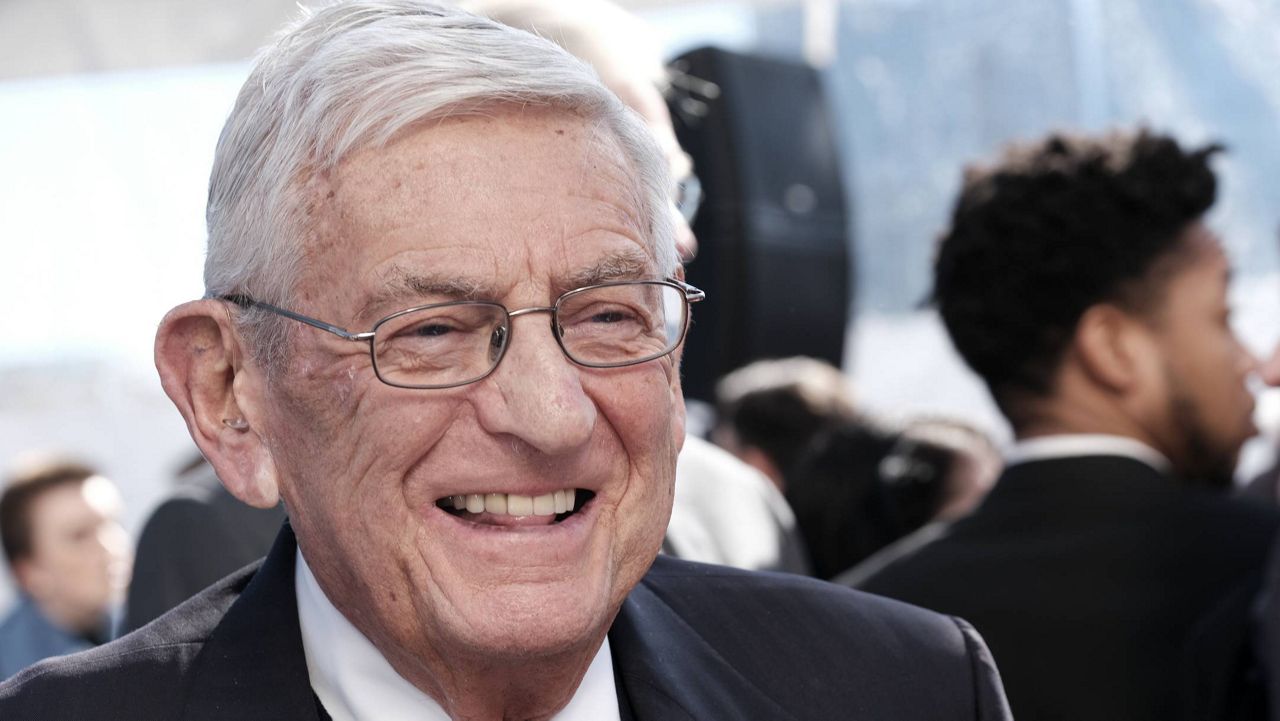LOS ANGELES — Businessman, philanthropist and art collector Eli Broad, who left an indelible imprint on Los Angeles' cultural scene, died Friday at age 87.
What You Need To Know
- Broad died at Cedars-Sinai Medical Center following a long illness
- He was a founding chairman of the Museum of Contemporary Art and a major benefactor of Los Angeles County Museum of Art, the Broad Contemporary Art Museum, the LA Opera and The Broad Stage
- With more than $100 million in donations, he established stem cell research centers at UCLA, USC and UC San Francisco
- Broad is survived by his wife Edye, and his two sons Jeffrey and Gary
Broad died at Cedars-Sinai Medical Center following a long illness, according to Suzi Emmerling, spokeswoman for the Eli and Edythe Broad Foundation.
A New York native, Broad parlayed a loan from his in-laws into a homebuilding empire with partner Donald Kaufman that began in Detroit in the late 1950s but migrated to Los Angeles in 1963. That company, Kaufman and Broad Home Corp., grew into what is now known as KB Home.
In the 1970s, he acquired Sun Life Insurance Company for $52 million. The company, which eventually became known as SunAmerica, was sold to American International Insurance Group in 1998 for $17.8 billion.
Broad was the first person to develop two Fortune 500 companies in different industries. Forbes estimated Broad's net worth at $6.7 billion two years ago.
Selling SunAmerica allowed Broad to focus on philanthropy. The Eli and Edythe Broad Foundation was founded in 1999, with an endowment that eventually topped $2 billion. Over the years, the foundation invested more than $600 million in public education in the Southland and in cities including Boston, New York, Chicago, Denver and Detroit.
The Broad Prize for Urban Education continues to honor school districts for academic performance, and has provided $16 million in scholarships to more than 1,200 students.
"As a businessman Eli saw around corners, as a philanthropist he saw the problems in the world and tried to fix them, as a citizen he saw the possibility in our shared community, and as a husband, father and friend he saw the potential in each of us," said Gerun Riley, president of The Eli and Edythe Broad Foundation.
Broad was also dedicated to scientific and medical research, as well as the arts, supporting scientists, museums and public schools across the country. An avid collector, The Broad museum in downtown Los Angeles houses the Broads' collection of more than 2,000 artworks.
His name also adorns The Broad Center at Yale School of Management, a development program for public school system leaders, and the Broad Institute, a genomic medical research center founded with Harvard University and the Massachusetts Institute of Technology.
With more than $100 million in donations, he established stem cell research centers at UCLA, USC and UC San Francisco. He also donated more than $50 million to his alma mater, Michigan State University, to establish college and graduate schools of business and to create a contemporary art museum.
He was also a founding chairman of the Museum of Contemporary Art and a major benefactor of Los Angeles County Museum of Art, the Broad Contemporary Art Museum, the LA Opera and The Broad Stage.
He was also active politically in recent years, pouring money into political campaigns, with a particular eye on climate change, voter rights and a wealth tax.
In a recent op-ed for The New York Times, Broad wrote: "Two decades ago I turned full-time to philanthropy and threw myself into supporting public education, scientific and medical research, and visual and performing arts, believing it was my responsibility to give back some of what had so generously been given to me.
"But I've come to realize that no amount of philanthropic commitment will compensate for the deep inequities preventing most Americans -- the factory workers and farmers, entrepreneurs and electricians, teachers, nurses and small-business owners -- from the basic prosperity we call the American dream. ... Our country must do something bigger and more radical, starting with the most unfair area of federal policy: our tax code. ... The enormous challenges we face as a nation — the climate crisis, the shrinking middle class, skyrocketing housing and health care costs, and many more — are a stark call to action. The old ways aren't working, and we can't waste any more time tinkering around the edges."
Sen. Dianne Feinstein said "few people had more of an impact on the city of Los Angeles than Eli Broad."
"His philanthropic work influenced fields as diverse as education, science, health care and the arts," said Feinstein, D-California.
"Eli's generosity is responsible for research programs, schools, museums and other efforts designed to make Los Angeles and California a better place to live. He called himself `A builder,' and that's the legacy Eli leaves behind."
Los Angeles County Supervisor Janice Hahn said Broad "loved his adopted city and through his generosity, helped transform L.A.'s physical and cultural landscape and make it the capital of arts and culture it is today."
Los Angeles City Councilman Mark Ridley-Thomas said Broad "pushed all of us to do better, to dig deeper, to invest more and to invest smarter to make Los Angeles a global epicenter for innovation and culture.
"He championed catalytic transformation in the arts and education fields, including creating countless opportunities for young people to advance in the areas of science, technology, engineering and mathematics," Ridley- Thomas said.
"I will forever be grateful for his commitment to addressing homelessness, as a major backer of Measure H, which was approved by voters in 2017 and generates over $350 million each year to prevent and respond to the moral crisis of our time."
Broad is survived by his wife Edye, and his two sons Jeffrey and Gary.



